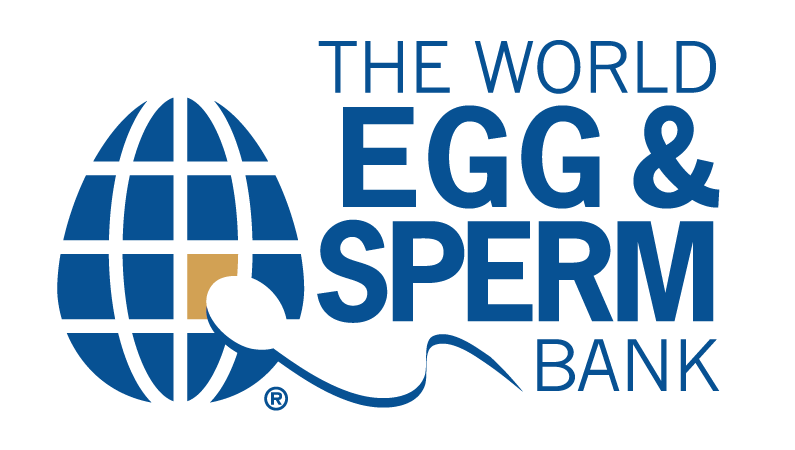Understanding Egg Donation Disqualifiers

Let’s be proactive! Before investigating the entire egg donation process, it’s essential to understand whether you are a good fit to donate at the egg bank of your choice. Luckily, we’ve gathered all the potential egg donation disqualifiers so you can accurately determine your own eligibility before applying!
Read on to learn what can possibly exclude you from becoming an egg donor, and why we have the requirements we do!
Why Are There So Many Requirements to Donate Your Eggs?
We understand at first glance that these requirements can seem like an unrealistic and overwhelming grocery list for donors to embody. However, each requirement and relative disqualifier are imperative to be transparent on and exist for several reasons:
- Protecting the egg donor’s health.
- Promoting the highest chance of a future successful pregnancy.
- Ensuring that the future child does not inherit any serious genetic health issues from the donor.
- Following standards set by the FDA and the American Society of Reproductive Medicine.
What Are the Most Common Egg Donation Disqualifiers?
Age
If you are under the age of 18, or over the age of 31, you will be disqualified from donating your eggs.
- Egg donors must be at the age of consent, as egg donation is a serious decision that requires careful consideration.
- After 31 years of age, egg quality and quantity both begin to decrease, leading to a lower likelihood of retrieving the needed quantity of healthy eggs.
Residency
Our singular egg bank facility is in Scottsdale, Arizona, and we retrieve and freeze all our eggs in house! While you do not need to live in Arizona to qualify, egg donors must hold a Permanent Residency in either the United States or Canada along with corresponding official Government issued ID. Egg donors will have travel and hotel expenses covered by The World Egg and Sperm Bank when they visit us for their egg retrieval.
Body Mass Index
Egg donors must be within a certain BMI range to donate. Having too low or too high of a BMI can increase certain risks, including:
- Negative reaction to hormone stimulations necessary to mature eggs for retrieval.
- Surgical or anesthetic complications during the elective procedure.
Drug Usage and Smoking
Consumption of drugs and tobacco products can have a significant effect on female fertility. Depending on the frequency of use, certain chemicals as well as nicotine and carbon monoxide can increase the percentage of eggs that are lost in each menstrual cycle. This can lead to our embryologists having less success in retrieving healthy eggs in a large enough quantity.
Birth Control Usage
Most aspiring egg donors have or are currently using a form of contraception. However, not all types coincide with the egg donation process, so it can be a bit of a birth control roulette!
Which forms are accepted?
- Birth control pill
- IUD
- Birth Control Patch
Which forms aren’t accepted?
- Nexplanon
- Implanon
- Depo Provera
However, do not despair! Those eager to donate their eggs always have the option to discontinue usage of any unaccepted form of birth control! How you say?
- Discontinue the form of birth control.
- Wait 2 normal periods.
- Reach out to our donor coordinator to say that you are ready to begin the process again!
Inheritable Genetic Disorders
When donating your eggs, your egg bank not only needs to know about you, but your family as well! Egg donors must provide full and accurate knowledge of their parent’s medical history, as well as their grandparents on both sides. We understand this may be a lot of specific information that may take time to attain, but this will help our bank identify any potential genetic disorders running in your family.
This is where the disqualifier comes in. Potential donors can be denied if certain serious physical or mental health disorders are present through medical history, or when you undergo genetic testing.
Donation Limits
Egg donors are not limited to donating at one bank. While all egg donors can only donate up to 6 times in their lifetime, they may donate at multiple facilities. If they attempt to donate a 7th time at the same or a different facility, they will be immediately denied.
Other Egg Donation Disqualifiers
While the lion’s share of prospective egg donors will be denied through the application, their journey can still be cut short later in the process following our medical and psychological screening. What are some other egg donation disqualifiers?
Time to Commit to the Journey
Egg donation is a marathon, not a sprint! Think about your current priorities in life, whether you’re in school, working full time, or have certain life circumstances that lead you to have little free time. Make sure you are in a good place to dedicate the needed time to keep up with appointments and necessary traveling.
Understanding the Egg Donation Process
It’s our responsibility to ensure that women coming into our facility have a complete understanding of each step of the egg donation process, from the application to egg retrieval as well as relative risks. Donors may be disqualified if we determine they are not fully confident in their decision to donate and or are struggling to comprehend what is required of them.
Reasons for Donating
Each egg donor can possess their own unique motivations for donating, and this is something we ask each donor in screening. The World Egg and Sperm Bank Egg must confirm that there are no instances of coercion by other parties. Overall, donation is a long and complex process, so don’t hesitate to ask yourself this question first before you apply.
Mental State
Any donation which entails some form of a procedure requires someone of strong mind and body. Our psychological counselors will ask questions to ensure that you feel ready to embark on the rest of the journey, and address and report any signals that you are not mentally equipped now to qualify.
Sexually Transmitted Diseases
Your reproductive health is just as important to us as our recipient’s health who will receive your eggs. In the medical screening process, all egg donors will be tested for a variety of sexually transmitted diseases. Some of these sexually transmitted diseases can be transferred through your egg donation, such a hepatitis B and C. If a donor tests positive for an STD they will be denied but may re-qualify in the future once given treatment.
Start The Journey to Egg Donation Today!
Now that you’ve had the time to comb through all of the potential egg donation disqualifiers, take the first step to donating your eggs by completing our application!
Follow us on our socials!
Check out our Instagram, Facebook, and LinkedIn pages to see our content and learn more!





